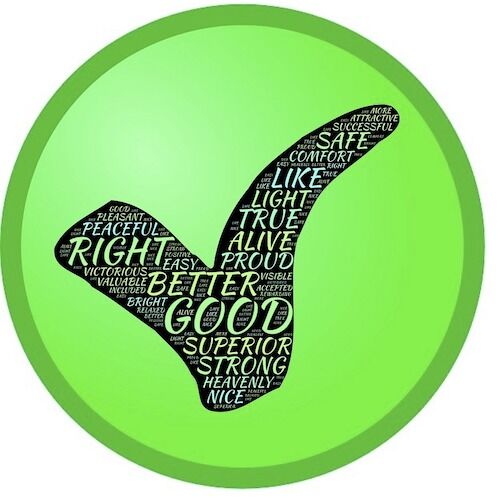By Margaret Enloe, JD, PCC. When I was a teenager and wanted to go out with friends, my father’s parting words were always “use your good judgment.” There were no admonishments to get home by 11PM or avoid pot. Instead, I got the message to do what made sense under all circumstances. And therein, like a blow to freedom, the responsibility fell on me to use my good judgment at all times — and I felt the pressure.
But, what is good judgment? There were definitely no discussions about that when I was a teen. It was assumed I knew. And, by and large, we all know what it is and when it’s lacking.
Some recent examples come to mind in connection with the coronavirus, such as the decision of one man to attend a school mixer when showing signs of possible infection. Or the failure of the U.S. government to anticipate the virus’s swift impact and need for millions of test kits.
Parsing out the elements of good judgment is helpful in allowing leaders to improve when they’re using it and when they’re not. In The Elements of Good Judgment – How to improve your decision-making by Sir Andrew Likierman (Jan-Feb 2020 Harvard Business Review), he states that “leaders with good judgment tend to be good listeners and readers. They are able to hear what other people actually mean, and thus able to see patterns that others do not.”
The six elements of good judgment Likierman points out bear mentioning:
- Learning, by listening attentively and reading critically
- Trust, by seeking diversity, not validation
- Experience while recognizing that, if narrowly based, it can be dangerous
- Detachment by identifying and then challenging biases
- Options by questioning the solutions offered to solve a problem
- Delivery by thinking through the feasibility of execution on a solution.
Abraham Lincoln, whom the world venerates for good judgment in difficult times, was known to be a good listener and a prolific reader. He also surrounded himself with people he didn’t necessarily agree with, like William Henry Seward, his main rival in 1860 who later became Lincoln’s Secretary of State and a trusted advisor. Lincoln also had a lot of experience in politics and life’s challenges but counseled with many; he was confident but didn’t suffer from overconfidence.
Leaders will likely believe they exercise good judgment, or at least try to most of the time. In concluding this, hopefully they remain curious and consider not just their past successes. Hopefully, they ask good questions, listen attentively, have the right experience and surround themselves with smart people who challenge their assumptions. If so, they are more likely to exercise good judgment when it is called for.
In the era of the coronavirus, not to mention global warming, terrorism and polarized politics, people everywhere are desperate for information they can trust. Leaders, whether of a company, institution, or country, who use good judgment in making decisions, will gain that trust.
To learn more about the art and science of good judgment, leadership, and trust, schedule a consultation with Margaret.

